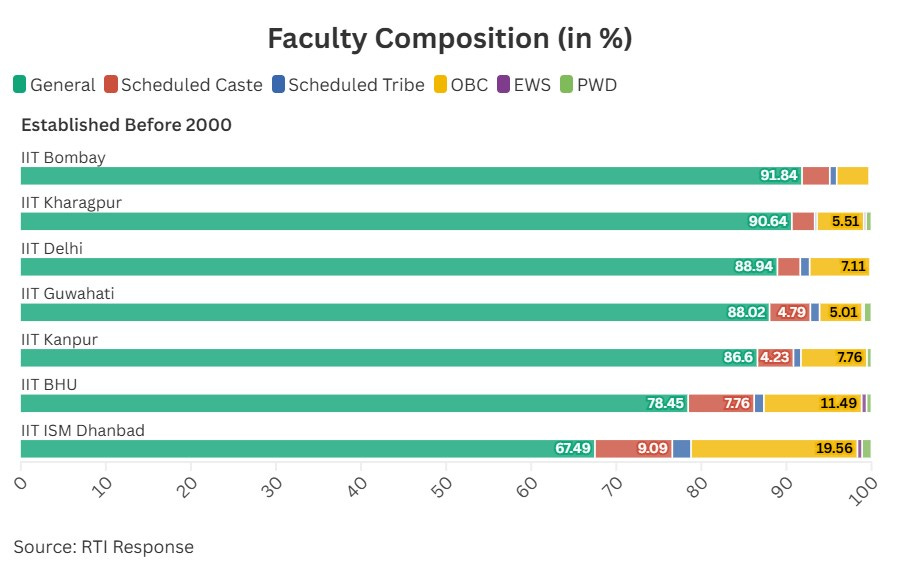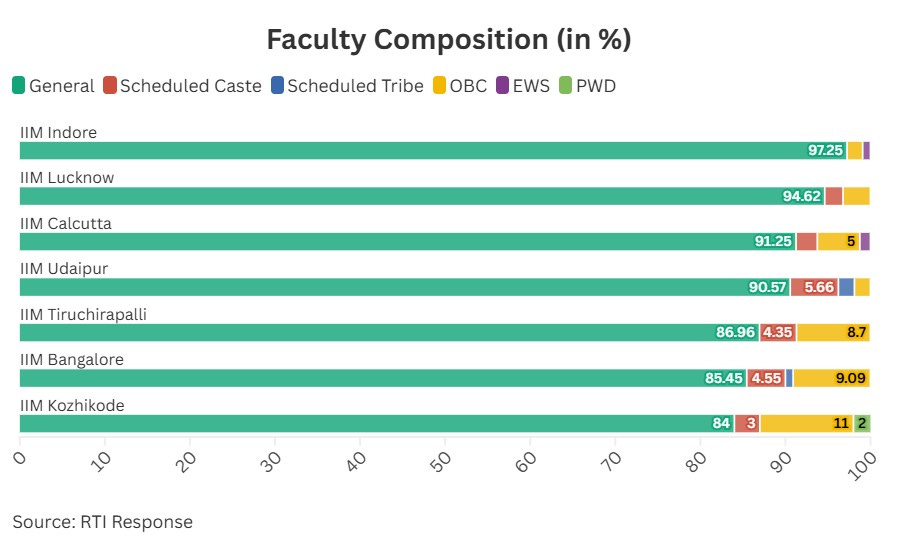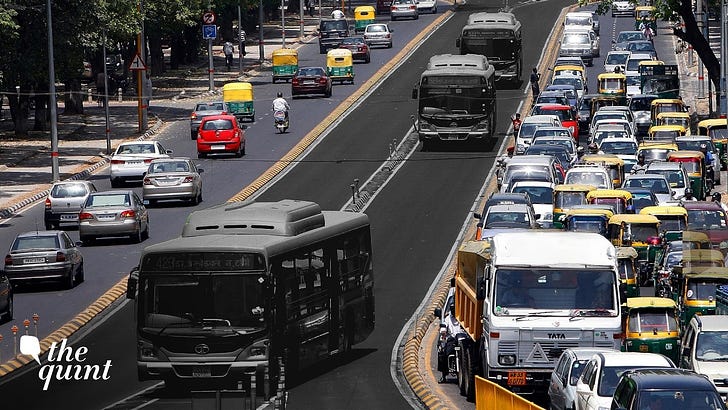The Question is... Are IITs & IIMs Upper Caste Clubs?
Sometimes the all important questions go unnoticed and unanswered. Support us as we strive to uncover them!
Dear Reader,
Do you know that of the total 735 faculty members at IIT Bombay, only six or a meagre 0.008% belong to Scheduled Tribe (ST) despite 7.5% seats being reserved for the community?
Similarly, or worse, there are no professors belonging to the ST or Scheduled Caste (SC) communities at IIM Indore even when 15% seats are reserved for the latter.
I tried to determine if IITs and IIMs are implementing reservations for marginalised communities while recruiting teachers by accessing a clutch of Right to Information (RTI) applications filed by G Kiran Kumar, National President of the All India Other Backward Classes Student Association (AIOBCSA) in September this year.
The RTI queries, sent to all 23 IITs and 21 IIMs, sought data on the category-wise composition of the current faculty strength vis-a-vis the total sanctioned strength as well as vacant positions. On analysing the RTI data, I found glaring violations in 21 of 23 IITs and at least 14 IIMs across India.
The question is — are IITs and IIMs truly inclusive as far as their faculty is concerned?
In line with the Constitution of India and the Supreme Court, the government of India mandates reservations —15% for SC, 7.5% for ST, 27% for OBC, 10% for Economically Weaker Sections (EWS), and 5% for Persons with Disabilities (PwD) — in education and jobs.
Yet, at least two IITs—Kharagpur and Bombay—have more than 90% of their faculty from the General category, leaving little to no room for those belonging to marginalised groups. Further, in six IITs more than 80% of the faculty strength is from the General category while in at least seven IITs, the strength of ST teachers is under 1% of the total faculty.
The question is how are IITs blatantly violating reservation norms while hiring teachers?
In response to the RTI query, a few IITs mentioned following a ‘flexi cadre system’ for recruiting faculty members. I reached out to each institute for clarification on what is the flexible cadre system of recruitment, when and why did it replace the conventional roster-based system (which ensures quota being implemented). However, I have received no clarification in this regard yet.
Although, a PhD student at IIT Bombay offered an insight into how the system is seemingly bypassing the law.
The situation is no better at IIMs. While IIM Indore has over 97% teachers belonging to the General category, in at least three IIMs—Calcutta, Lucknow, and Udaipur—unreserved category faculty forms have more than 90% of the total strength. Consequently, IIM Calcutta, Lucknow and Indore have no faculty belonging to the ST community.
“Such inequities not only contravene the reservation policy but also perpetuate systemic exclusion, impacting diversity and the aspirations of marginalised communities in academia,” a statement from The All India OBC Students Association noted.
I have been aggressively telling stories on caste-based inequities and discrimination in higher educational institutes for The Quint. Whether it's travelling on ground or combing through a repository of data, neither can happen without your support. Consider becoming a member and help us bring you authentic, data-backed, independent journalism.
Thank you,
AAKRITI HANDA
Special Correspondent
Also Read:
*Already a member of The Quint? What a star! Your support helps us do what we do better.
Want us to cover a story? Write to us at editor@thequint.com or reply to this email.








I read your article. But how to solve this problem ? You have diagnosed the decease but not prescribed the medicine.